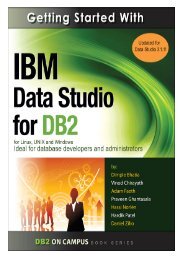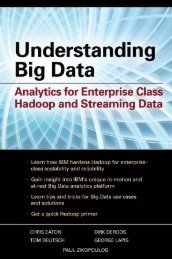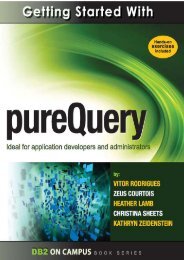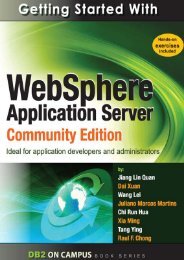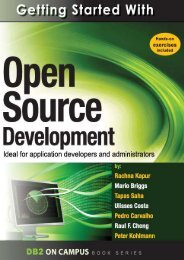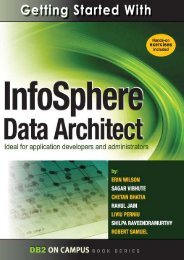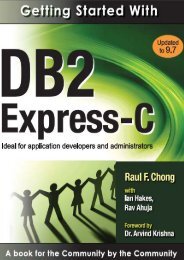Managing Computers in Large Organizations
You also want an ePaper? Increase the reach of your titles
YUMPU automatically turns print PDFs into web optimized ePapers that Google loves.
<strong>Manag<strong>in</strong>g</strong> Microcomputers <strong>in</strong> <strong>Large</strong> <strong>Organizations</strong><br />
http://www.nap.edu/catalog/167.html<br />
About this PDF file: This new digital representation of the orig<strong>in</strong>al work has been recomposed from XML files created from the orig<strong>in</strong>al paper book, not from the<br />
orig<strong>in</strong>al typesett<strong>in</strong>g files. Page breaks are true to the orig<strong>in</strong>al; l<strong>in</strong>e lengths, word breaks, head<strong>in</strong>g styles, and other typesett<strong>in</strong>g-specific formatt<strong>in</strong>g, however, cannot be<br />
reta<strong>in</strong>ed, and some typographic errors may have been accidentally <strong>in</strong>serted. Please use the pr<strong>in</strong>t version of this publication as the authoritative version for attribution.<br />
INTRODUCTION 99<br />
Introduction<br />
Rhoda W. Canter*<br />
If grappl<strong>in</strong>g with microcomputer technology trends, their implications, and<br />
the management issues <strong>in</strong>volved is difficult on a theoretical level, develop<strong>in</strong>g<br />
and implement<strong>in</strong>g strategies uniquely adapted to <strong>in</strong>dividual organizations is an<br />
even more awe-some task. For every theoretical issue there are multiple<br />
practical questions to answer:<br />
• How much control is needed over microcomputers, where and when is it<br />
needed, and through what means can it be applied most effectively?<br />
• Should microcomputers be <strong>in</strong>terconnected or connected with<br />
m<strong>in</strong>icomputers and ma<strong>in</strong>frames? What is the most systematic approach to<br />
def<strong>in</strong><strong>in</strong>g appropriate uses of the different technologies? What are the<br />
implications for the organizational structure and skills of the <strong>in</strong>formation<br />
process<strong>in</strong>g community?<br />
• How can the most effective microcomputer applications be identified and<br />
what are the implications for the functional management community?<br />
• What pace of implementation will best suit the needs, desires, and<br />
capabilities of potential users of microcomputer?<br />
• Should management responsibilities for <strong>in</strong>formation process<strong>in</strong>g be<br />
reassigned and, if so, how?<br />
* Rhoda W. Canter is a pr<strong>in</strong>cipal of Arthur Young and Company, Wash<strong>in</strong>gton, D.C.<br />
Copyright © National Academy of Sciences. All rights reserved.




